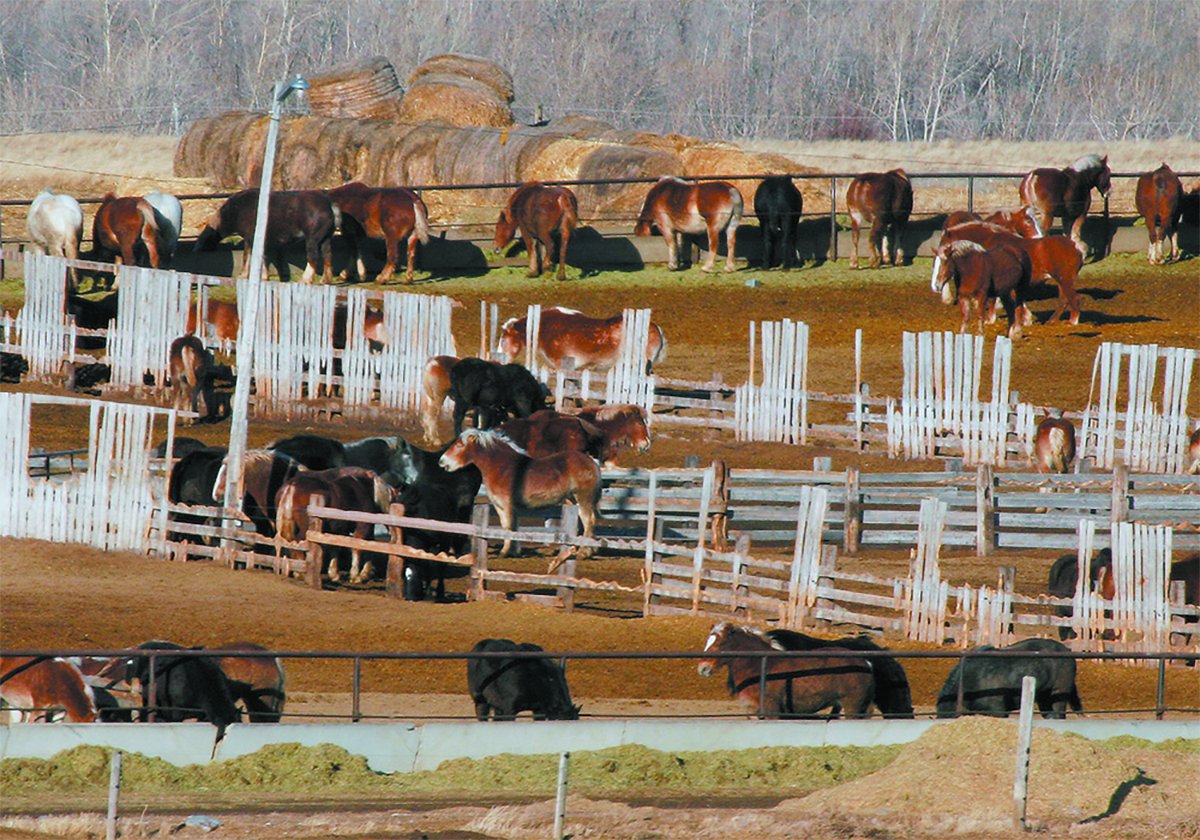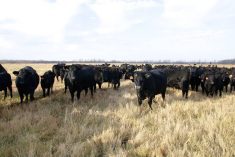Bulls can be long-term carriers of various infectious bacteria and parasites that can potentially cause a loss of fertility in cow-calf herds.
Some of these pathogens are transmitted through sexual activity and can lead to early embryonic loss or abortion, which results in a higher percentage of cows being open at pregnancy testing time.
I recently read a scientific study that surveyed 210 bulls from 18 beef cattle farms in Brazil. In this study, the researchers from the University of Rio Grande do Sul attempted to isolate different infectious disease-causing organisms that can result in cow infertility. It is important to note that they recruited these bulls from herds that had a history of poor reproductive performance and extended calving intervals.
Read Also

Canada’s slaughter horse industry lacks transparency
The lack of clear reporting and public access to data keeps the industry largely hidden, leaving questions about humane treatment and traceability unanswered.
In this study they found Campylobacter fetus (Vibrio bacteria) was found in 55 percent of bulls, the parasite Tritrichomonas fetus was only found in 0.6 percent of bulls and the bacteria Ureaplasma diversum was found in 28 percent of bulls.
In 2017, a study was published by Dr. Cheryl Waldner and colleagues at the University of Saskatchewan that evaluated some of the same disease agents in bulls from Western Canada. This study was part of the Western Canadian Cow-Calf Surveillance Network, which was funded by the Beef Cattle Research Council and Saskatchewan Agriculture.
In the study, Waldner and colleagues obtained preputial samples from 735 bulls from 78 herds across the provinces of Manitoba, Saskatchewan and Alberta. Local veterinarians collected the samples from the bulls from 78 different cow-calf herds in that study. An important difference from the Brazilian study is that these herds were not necessarily experiencing infertility problems. In fact, most of these herds had good reproductive performance and reasonably good management, as the median open rate in these herds was 6.5 percent. About 28 percent of the herds and 10 percent of the bulls had exposure to communal grazing.
The prevalence of Campylobacter fetus positive bulls was 1.1 percent and the prevalence of Tritrichomonas fetus was .001 percent. The prevalence of Campylobacter fetus in western Canadian bulls was much lower than that reported in the study from Brazil.
This may be due to a lower frequency of communal grazing, which allows these bacteria to spread between cows and bulls more easily, or it might be because the Brazilian study targeted bulls from herds with infertility problems.
The western Canadian study did demonstrate that there was an increased risk of cows being open in herds where a bull tested positive for Campylobacter fetus.
We continue to see infertility caused by both Campylobacter fetus and Tritrichomonas fetus occasionally in western Canadian herds. These problems are often linked to a communal grazing situation.
There are Campylobacter vaccines available that may provide protection against infertility in cows, but other research studies have shown that the use of vaccines in infected bulls does not effectively stop the bull from long-term shedding. These two pathogens are at a very low prevalence in western Canadian bulls, but they are still present and can pose a potential threat to infertility.
I was interested in the finding that 28 percent of the bulls in the Brazilian study were found to be positive for Ureaplasma diversum. This primitive bacterium is somewhat related to the Mycoplasma family of bacteria and it is found in the reproductive tract of cows and bulls. There is evidence that it can be associated with infertility and abortion. However, we can also find Ureaplasma present in the reproductive tracts of animals that are not experiencing infertility. This has made it difficult to assess its importance in causing infertility.
I’ve recently investigated several cases of infertility in cow-calf herds where Ureaplasma was suspected as the potential cause and it was isolated from all the affected open females. Unfortunately, we don’t have good prevalence estimates for Ureaplasma infections in Canadian bulls. It would be interesting to conduct a similar study in western Canadian herds to find out how common this infection is in bulls. However, it is still difficult to ascertain the importance of Ureaplasma as a cause of infertility.
If you have a higher number of open cows this fall, talk with your veterinarian about investigating the causes. There are many potential causes of infertility, which might include nutritional issues, body condition, cycling and bull management.
These infectious diseases of bulls are probably a greater risk and more likely if your cows or bulls have had some exposure to communal grazing.
One potential cause can be explored by obtaining preputial samples from bulls to determine if these infectious sexually transmitted diseases might be part of the problem.
John Campbell is a professor in the department of Large Animal Clinical Sciences at the University of Saskatchewan’s Western College of Veterinary Medicine.

















